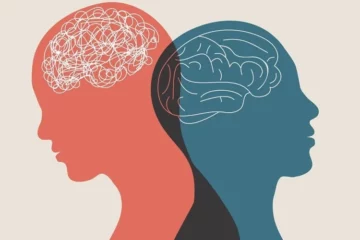I have a brilliant article in progress about a social issue that I am passionate about. Because of the nature of social issues, writing about them can be quite taxing, which is why it has taken me what feels like forever to complete it.
There wasn’t enough sheer will and determination to get the article ready, and like any sane human being, I was disappointed in myself. I felt unproductive, and that I wasn’t living up to my fullest potential – a bit dramatic, right?
WRONG!
We all do it. So what, if I am showing up in work, social and personal spaces? I haven’t completed the article and so I am a failure.
Think I am exaggerating? Here’s an example that many of us can relate to.
February’s 28 days have come to an end so you can expect to see posts on social media about 2 months into 2022, how far with those New Year’s resolutions? 10 months until the end of the year, make them count. Happy New Month, here’s to *insert ambitious goals*. While a lot of these are shared in jest or good faith, they can take a life of their own and affect your mental health.
If these statements motivate you to be your best, every day, for all the 365 days of the year, yaaaay you!
If, like me, they can make you feel inadequate, this is for you.
You’re enough, just because you exist. You are not your outputs – they are an extension of you. So, the next time you feel like a failure, please remember that you are doing the best that you can in a difficult situation (can 2 years of a global pandemic, loss, grief, you name it, be defined as a situation?)
In case you need some tools to carry you through, here are 5 for you to consider;
- Journaling: There are different types of journaling but all of them share the same principle – writing down your thoughts and or feelings. While most people journal daily, how often you journal should be entirely up to you. Journaling can be a useful tool for reducing stress, providing mental clarity, and fighting negative self-talk.
- Meditation: There are many types of meditation so finding the right one for you might take some time for some people. One of the ways for you to know that you have found the right one for you is when it feels comfortable and you feel encouraged to practice. Meditation has been known to help with anxiety and improve sleep.
- Therapy: It can help with a wide range of issues like mental health conditions, relationship issues, and life adjustments. I must add that therapy can be expensive so keep that in mind should you choose to consider it.
- Doing More Of The Things That Make You Happy: Knowing/finding out what makes you happy and deliberately making time to do more of that can make you *drumroll* happier. Whether it is dancing like nobody’s watching, or taking walks, find your happy place and find ways to go there often.
- Take Care Of Yourself: You can’t pour from an empty cup so eat healthily and regularly, stay hydrated, sleep for 8 hours when you can, take social media breaks if you need to, rest, pause, Netflix and chill (emphasis on the chill) – whatever taking care of yourself looks like to you.
It’s important to remember that what works for others may not work for you, and that’s okay. Take your time until you find the right tools for you.
I am rooting for us.
Happy March!
Thumbnail photo by Aziz Acharki from Unsplash



